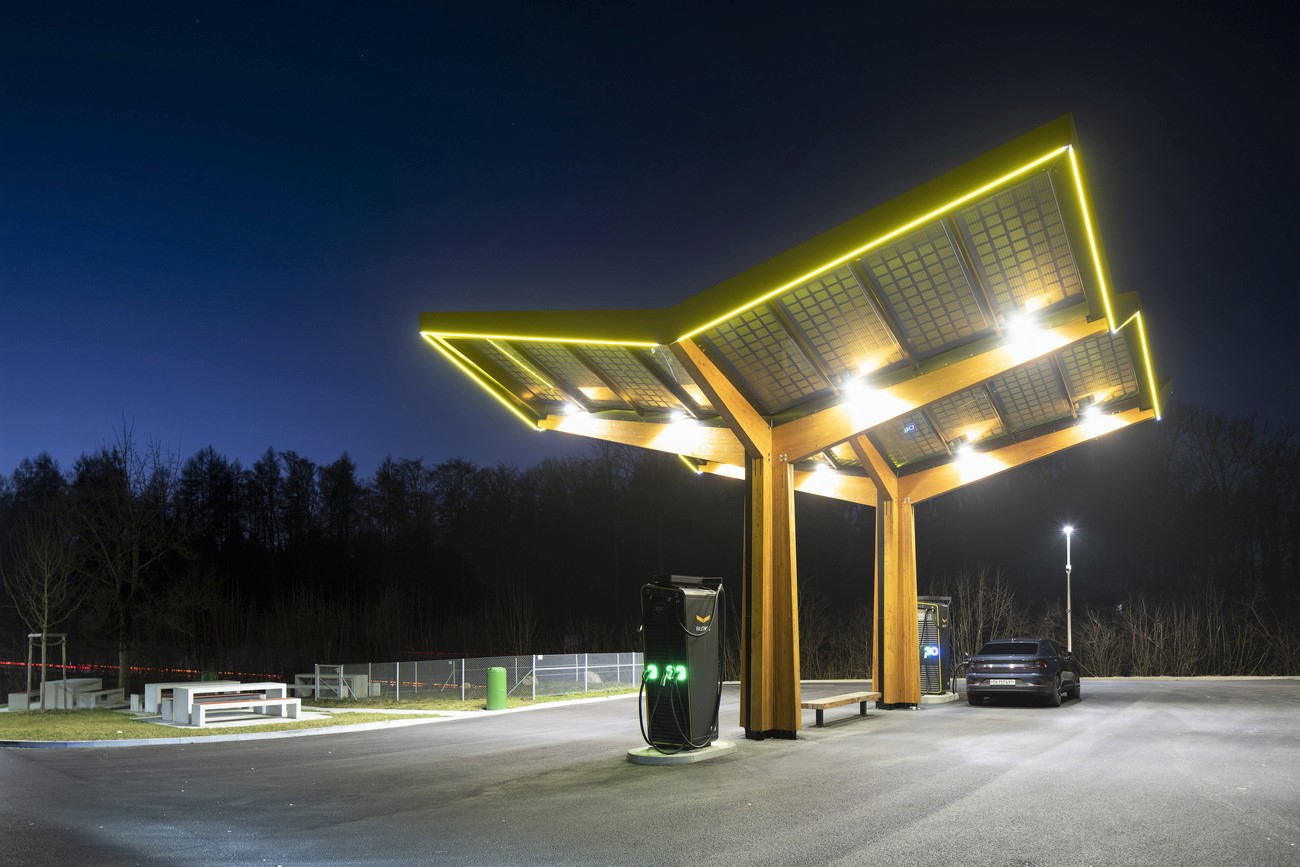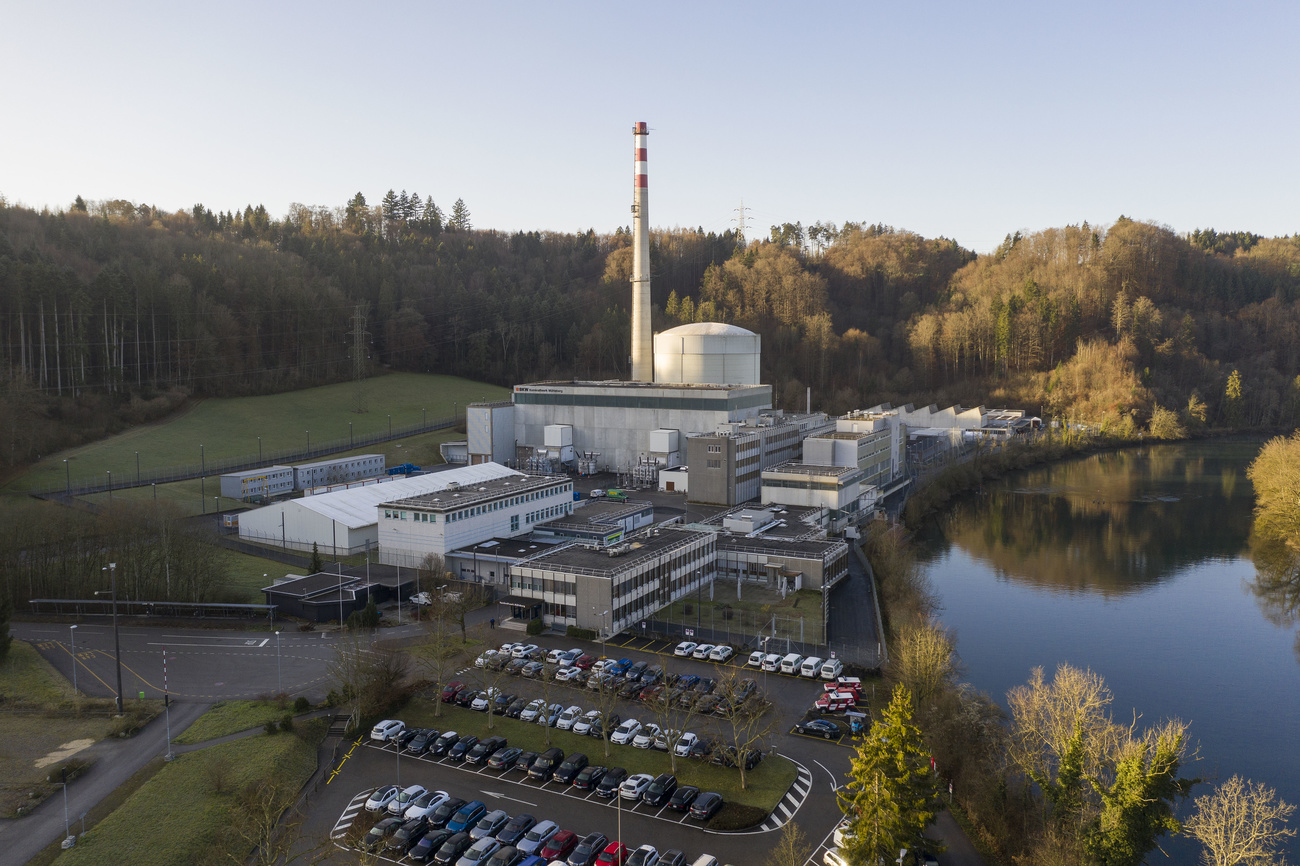‘I don’t want to sacrifice our prosperity just for the sake of a clearer conscience’

If accepted, the new climate law will will prove hugely costly for Switzerland while having virtually no global impact, argues Michael Graber from the Swiss People’s Party. He wants citizens to say “no” when the law comes to vote on June 18.
The Federal Act on Climate Protection, Innovation and Energy Security (Climate Act) requires Switzerland to reduce its net greenhouse gas emissions to zero by 2050. The aim is to accelerate the transition to renewable energies and reduce dependence on energy imports.
+ Switzerland’s energy transition to be decided at the ballot box
The law, put forward as a counter-proposal to the so-called Glacier Initiative, was approved by government and parliament before opponents collected the necessary 50,000 signatures to challenge it to referendum. Michael Graber, a parliamentarian from the right-wing Swiss People’s Party, is the co-chair of the referendum committee.
The full textExternal link of the new climate law
ExplanationsExternal link about the law by the environment ministry
The websiteExternal link of the committee in favour of the law
The websiteExternal link of the committee against the law
SWI swissinfo.ch: Switzerland is particularly affected by climate change, with temperatures rising twice as fast here as the global average. Why are you against a law that calls for a shift away from fossil fuels, one of the main causes of global warming?
Michael Graber: First of all, let’s remember that the law is a counter-proposal to the Glacier Initiative, which was promoted by ecological circles with extremist views on the climate and the environment. The law is not the product of a broad societal consensus.
Climate change exists and is also influenced by humans. However, the new law will have no impact on global warming, given that Switzerland is responsible for just 0.1% of global CO2 emissions. In half a day, China puts out the same amount of emissions as Switzerland does every year. I’m sceptical about the benefit of a law that will cost us a lot of money but will have virtually no impact on a global level.
If we want to move away from fossil fuels, we’re going to have to replace petrol and diesel with electricity. But even now, there is not enough electricity available and the government has launched a campaign to cut down on usage.
SWI: Switzerland spends an average of CHF8 billion ($9 billion) each year importing fossil fuels, often from dubious sources such as Libya. Why not use this money in other ways, for example to promote renewable energy?
M.G.: Firstly, this is just a question of trade: importing and exporting is completely normal. Secondly, there are many countries, even very democratic ones, from which we can buy petroleum products – the US, for example.
I have nothing against renewables, but they won’t be enough to replace fossil fuels. They are not enough to produce the electricity needed at crunch moments. In winter and at night the sun doesn’t shine. It’s an illusion to think that we can make the transition so easily.
SWI: Your party is committed to independence and to protecting the Swiss model of direct democracy. But by importing large amounts of gas and oil, don’t we risk becoming dependent on authoritarian countries which often don’t respect human rights?
M.G.: For gas, we are somewhat dependent on Russia, that’s undeniable. The situation has also become more complicated due to the sanctions against Moscow. But this problem was already there before the war. The cause of this dependence lies in the government’s 2050 energy strategy, which plans to phase out nuclear power and produce part of our electricity in gas-fired power stations.
The only source of energy where we are independent is hydroelectricity. As far as nuclear is concerned, we could reduce our dependence on authoritarian countries, by buying uranium from Canada for example. But if we focus on solar energy, we will have to turn to the main producer in that sector, China – a country not exactly renowned for upholding democratic values.
+ The opposing view: Jacqueline de Quattro from the Radical-Liberal Party explains why she’s in favour of the new climate law.

More
‘Climate protection strengthens Swiss energy security’
SWI: What impact do you think the climate law will have on Switzerland’s energy independence?
M.G.: The law says nothing about energy independence. It is very misleading in this respect, because it defines objectives without saying how they will be achieved. The only thing we know is that achieving these goals with the technology we currently have will cost an exorbitant amount.
A study by the Boston Consulting Group found that almost CHF400 billion in investment will be necessary for Switzerland to achieve climate neutrality by 2050. And according to a study by the Swiss Federal Institute of Technology Lausanne (EFPL), per capita energy costs could rise from CHF3,000 to CHF9,600 a year.
SWI: More than 130 countries around the world, including European Union nations and the US, have announced that they intend to achieve climate neutrality by 2050 or 2060. Why shouldn’t Switzerland do the same, given that zero net emissions are essential for reaching internationally agreed climate targets?
M.G.: The Paris Agreement on climate, which was never put to public vote, doesn’t mention climate neutrality. It states only that the increase in the global average temperature by 2100 should be kept below 2°C.
Current technology must improve and emissions must be reduced – that goes without saying. However, I don’t understand why Switzerland has to be the first country to enshrine climate neutrality in law – there’s a risk that in the future other laws containing bans will then follow, on meat consumption perhaps. As I said: the law is a counter-proposal to a people’s initiative, not an international obligation.
SWI: If we take into account emissions from imports, the financial centre’s investments in fossil fuels, and the climate impact of international companies based here, Switzerland ranks in the “heavyweight” category along with countries such as Japan and Brazil, according to a study by the McKinsey consultancy firm. Can we justify doing nothing?
M.G.: Switzerland’s indirect emissions are high because we are a country with global links due to our finance and banking industries. The alternative would be to become a third-world country that generates some direct emissions but no indirect emissions. Is that really what we want? I don’t want to sacrifice the country’s prosperity merely for the sake of a clearer conscience.
Switzerland has already done a lot on a voluntary basis. Since the 1990s, we have reduced CO2 emissions per capita by over 30%. However, the whole discussion about climate – the Paris Agreement, climate targets, etc. – is about the country and not about population size. Last year, taking asylum-seekers into account, the Swiss population increased by 200,000. I wonder what’s the point of reducing per capita emissions when the population is growing so much.
We need to pursue a realistic and calm policy, instead of getting carried away by climate hysteria, as is currently the case.
SWI: The Swiss people have voted to phase out nuclear power. But many voices, abroad and domestically, now argue that nuclear power, as a low- or non-polluting source of electricity, can’t be abandoned in the fight against global warming. Does nuclear energy still have a role to play in the climate crisis?
M.G.: If we want to produce enough electricity without generating CO2 emissions – while maintaining a certain degree of energy independence – then nuclear power is certainly an option to consider.
Translated from French by Catherine Hickley/dos

In compliance with the JTI standards
More: SWI swissinfo.ch certified by the Journalism Trust Initiative














You can find an overview of ongoing debates with our journalists here . Please join us!
If you want to start a conversation about a topic raised in this article or want to report factual errors, email us at english@swissinfo.ch.